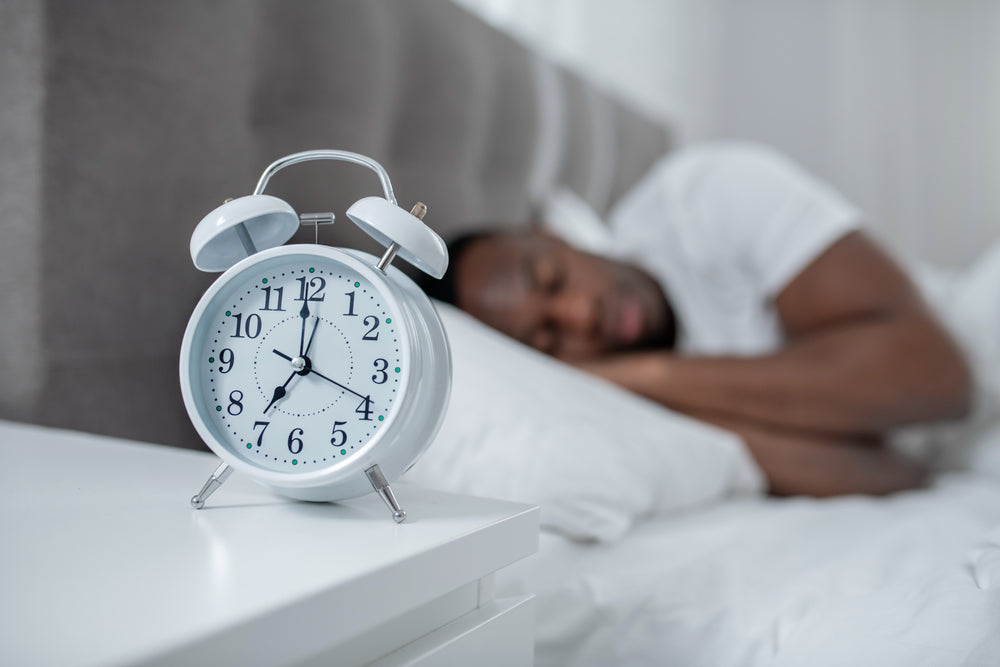Free U.S. Shipping On Orders Over $150

Healthy Sleep Routine: What's The Best Time to Sleep and Wake up?
Posted on
As long as you get your 7-9 hours of sleep in, you can sleep at any time, right?
Unfortunately, that’s not true. You can certainly stay up late and make up for it by waking up later, but only to a point. If you stay up too late, you may suffer the effects of sleep deprivation even if you sleep for 7-9 hours.
The ideal sleep time also depends on many other factors like what time you need to wake up, your particular circadian rhythm and whether you tend to easily give in to late night snacking (sleep earlier to avoid temptation).
Why It Matters What Time You Sleep
The time you go to sleep greatly determines your sleep quality. As we have talked about plenty of times on our blog, sleep quality is not something you want to take lightly. It affects your physical health, mental health, sex life, fertility and even longevity.
Because of work, kids and other commitments, most of us don't have the luxury to sleep up to whatever time we want. We have to be up fairly early. So if you sleep late, you don't get the recommended amount of sleep, which leaves you sleep deprived.
Various studies have also found that sleeping late (after midnight) is also harmful for health even if you sleep for 7-9 hours. This is probably because you cannot sleep deeply after a certain time in the morning after the sun rises. The combination of noise, light and rising temperature signals to your body that it’s time to wake up.
So it’s impossible to get 7-9 hours of deep, high quality sleep if you sleep after midnight.
What’s The Best Time to Wake Up?
To determine the best time to sleep, start with the best time to wake up.
For many of us, our wake up time is determined by our job, our family and other external factors. So if you know you need to wake up by 6am, it’s pretty easy to determine the best time to sleep. Simply count backwards the number of hours you need to sleep. For some people it’s 7 hours, for others it can be up to 9 hours.
But what if you have the freedom to wake up at any time? Does it matter when you wake up?
Yes it does. There is still something else that governs your ideal wake up time — your internal circadian clock. It’s the reason you find yourself waking up in the morning even if you’ve slept for only three or four hours.
Your circadian clock responds to sunrise, rising temperature and other environmental changes to wake you up, whether you’ve slept enough or not.
So the ideal time to wake up in the morning is around sunrise, which varies by region. You can usually afford to keep sleeping for about an hour after sunrise, but after that, you won’t enjoy deep sleep. You may have blackout curtains, but your body will still sense the higher temperature and hear daytime noises from outside.
What’s The Best Time to Sleep?
Plan your bedtime so that you have 7-9 hours of sleep by the time you have to wake up. If you normally need eight hours of sleep, you’ll need to sleep by 10pm to wake up at 6am.
If you don't have to wake up very early, you can stay up late but don't go past midnight. This lets you sleep up to 7-8am and still wake up rested and refreshed.
Once you’ve settled on your ideal sleep and wake up time, stick to it everyday even on weekends. Messing up your sleep schedule on weekends makes it harder to get back on track the following week. If you are not careful, you might find yourself back in a cycle of sleep deprivation and daytime fatigue.
Quick links
Contact
6063 Hudson Road #160
Woodbury, MN 55125
Yo@hercLeon.com
Leave a comment: